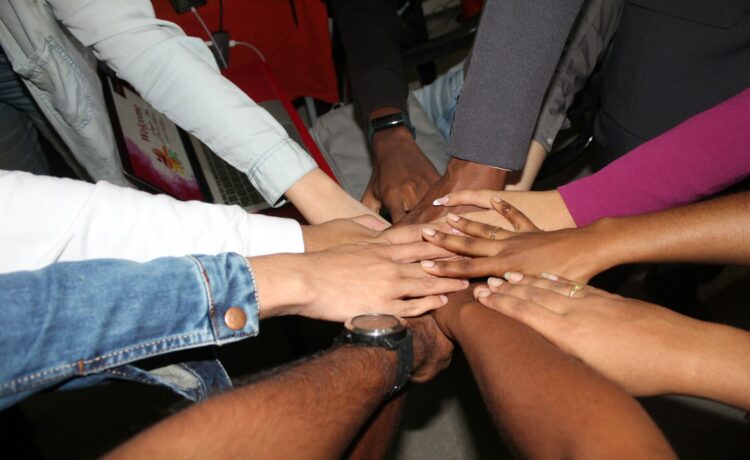The Importance of Social Integration in Personalised Day Programs

Connection is more crucial than ever because of the world we live in today. Social integration is an important aspect of the life and development of people who attend personalised day programs. It is not only about having something to do all day long, but building relationships that add value in life. Where can people find a place they feel part of and welcomed to? It is where people feel like they are appreciated and are interested and where friendship works and support networks prosper. This is what the social integration in such programs is all about, turning the ordinary into something extraordinary. The question is how building rapport can actually contribute to the experience of all the parties concerned.
Understanding the concept of social integration
Social integration concerns the establishment of a mixed society where people feel they belong, they are appreciated, and they are listened to. It is not just about being involved in activities, but about establishing cross-cutting relationships.
Social integration at its very essence is about promoting interactions between different groups. This may comprise individuals of different ages, backgrounds and abilities. By accepting such differences, we add to our experiences and worldviews.
Social integration helps to foster meaningful relationships in personalised day programs through mutual activities and discussions. It gives people a chance to share with each other and rejoice in their different stories.
The idea is to develop a sense of belonging. People need to feel that they belong to something bigger than they are a community where people help one another and where friendships can flourish naturally.
The benefits of social integration in personalised day programs
There are numerous advantages to social integration in personalised day programs for adults with disability . It improves the emotional well-being as it allows building friendships and bonds between participants. These relationships may cause feelings of happiness to increase and feelings of loneliness to decrease.
Furthermore, social integration encourages active participation. When people interact with other people, they tend to get involved in group activities, experience new things, and leave their comfort zones. This enhances confidence as well as personal development.
Also, common experience leaves lasting memories. These occasions create a feeling of solidarity that is essential to all concerned whether it is a group project or just a lunch talk.
Moreover, social interaction aids cognitive functioning. Frequently interacting offers a way to maintain the brain active and encourages people to gain knowledge in the sight and talents of each other. It brings a free flow of knowledge and innovation.
How social integration fosters a sense of community and belonging
Social integration is very important in establishing settings where people feel appreciated and accepted. As individuals interact with each other, they experience life togetherness forming relationships. Such relationships help in building community.
Social interactions in personalised day programs help participants to open up. They are able to communicate freely with others who are really listening. Trust and mutual respect are developed in this exchange.
A sense of belonging is inseparable with collective activities and interests. Bonding activities or teamwork enable each person to play the best role contributing to the notion that every individual is important.
In addition, being a member of a society augments psychological health. People usually feel better when they realize that they are not the only ones with their troubles or pains or pleasures. Collectivity can turn lonely time into a time of happiness and cooperation, and it will add value to each participant in the program.
The impact of social isolation on individuals in day programs
Social isolation has the potential to have serious impacts on people attending day programs. Disconnecting people can very easily result in negative mental health. Loneliness may be a source of anxiety and depression that makes daily activities too overwhelming.
The lack of meaningful interactions can make the participants unable to follow the program to the maximum. This detachment does not only hamper personal development, but also deters the acquisition of the required life skills.
In addition, isolation leads to an emotional wall that inhibits the ability to make new friends. People can forgo the mutual experience that helps to unite and communicate with peers.
Social isolation may also result in inadequacy. This emotion could be the result of self-comparison with other people who appear to be more socially competent or self-confident. Consequently, they could become more withdrawn into themselves rather than taking advantage of the enrichment opportunities in the program setting.
Strategies for promoting social integration in personalised day programs
To develop inclusive and lively day program, it is important to promote social integration within personalised day programs. There are a number of mechanisms that can be used to build relationships among players.
First, one could introduce group activities which promote group work and teamwork. It may be art lessons or neighborhood gardening, but these activities give people a chance to share and connect on similar interests. These activities have the potential to start friendships that do not end once the program is over.
Peer mentoring is the other useful technique. The participants who might struggle can be supported in relationships with more socially confident individuals. This is not only confidence enhancing but also improves the communication skills of the two parties involved.
Using technology can also help to fill in social divides. Virtual meetings or online discussion forums are other avenues of connection, particularly to those who might feel threatened in a large group. The tools enable people to interact at their own speed and feel like they are a member of the community.
It is also important to provide a free, open environment. The personnel must also be active in making introductions among members and prompting conferences between the individuals during breaks or idle times. Even a nice smile and the few words of a hello can go a long way in making someone feel welcomed.
Frequently asking participants to provide feedback on what they like the most will help keep programs current and interesting to all participants. Involving people in the planning of the future events leads to ownership and investment in the success of the program.
When such strategies are implemented, personalised day programs can be turned into spaces which all feel appreciated and related.








